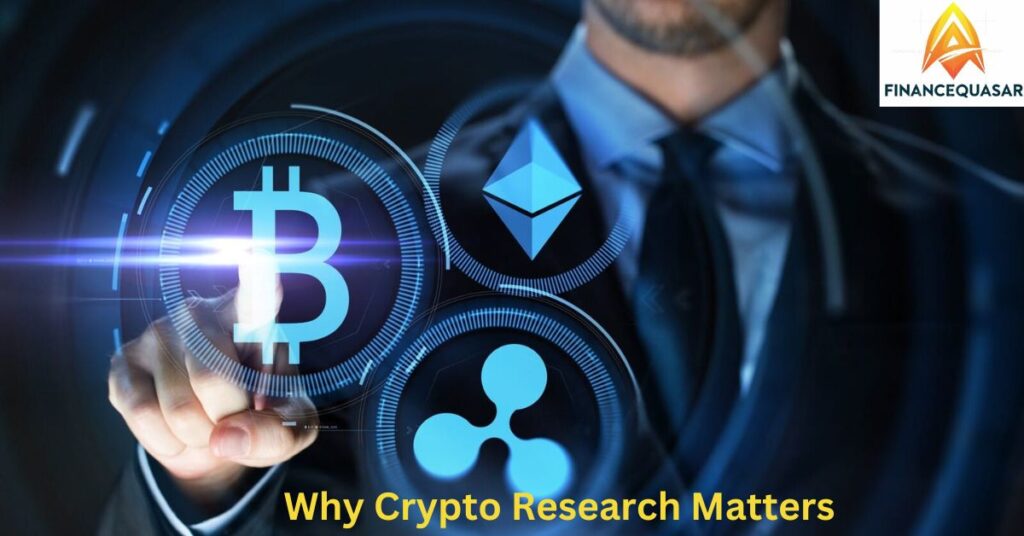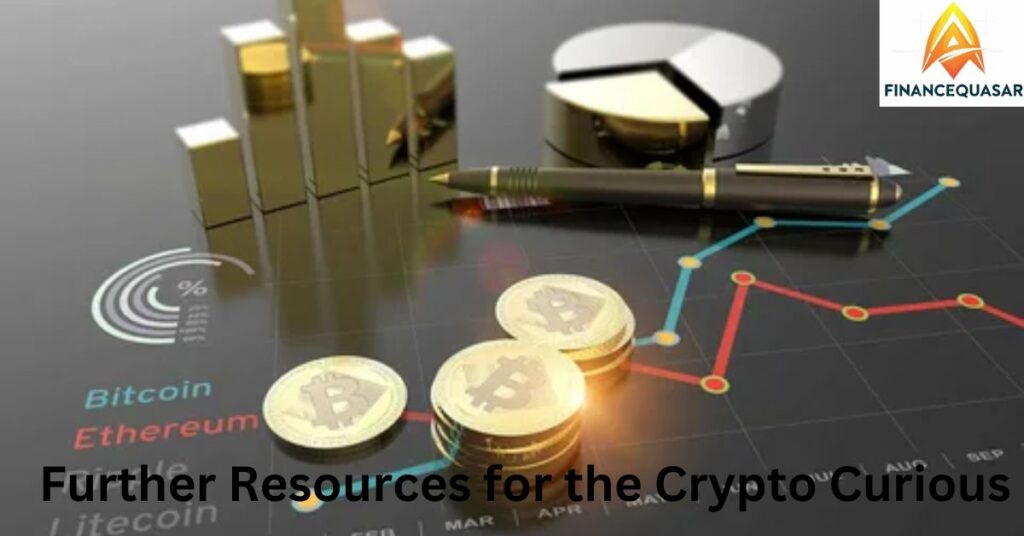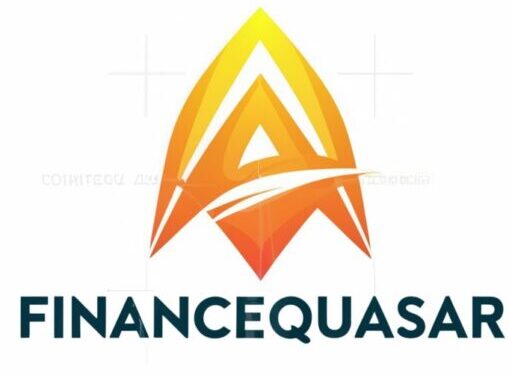A Comprehensive Guide to Crypto & Blockchain Research
The world of cryptocurrency and blockchain technology can feel like a dense jungle, brimming with opportunity and riddled with hidden dangers. If you’re a curious American wondering how to navigate this exciting yet complex space, then this guide is for you.
How do you research blockchain and cryptocurrency projects? Feeling lost in a sea of confusing acronyms and wild price swings. Don’t worry, you’re not alone! This comprehensive guide will equip you with the knowledge and tools to confidently navigate the exciting world of crypto, step-by-step. From understanding project goals to uncovering potential scams, learn how to research blockchain and cryptocurrency projects like a pro!
Why Crypto Research Matters

Before diving headfirst into buying cryptocurrencies (or cryptos for short), understanding the inner workings of a project is crucial. Crypto research empowers you to make informed investment decisions and separates genuine projects from potential crypto scams.
Here’s why research is paramount:
- Protection from Fraud: Unfortunately, the crypto space isn’t immune to bad actors. Cryptocurrency scams often involve fake projects or manipulate unsuspecting investors. Research helps you identify red flags and avoid falling victim to fraud.
- Strategic Investment: Effective research allows you to assess a project’s potential based on its goals, technology, and team. This empowers you to invest strategically, aligning your portfolio with projects that resonate with your financial objectives.
Equipping Yourself for the Research Journey
Now that you understand the importance of cryptocurrency analysis, let’s explore the essential tools you’ll need for your research journey.
Official Sources
- Project Websites: Consider the project website your ground zero. Look for key documents like white papers, team biographies, project roadmaps, and recent news updates.
- White Papers: These technical documents serve as a blueprint for the project. They delve into the project’s purpose, the underlying blockchain technology, and the project’s tokenomics (the structure and economic model of the cryptocurrency).
Independent Research Platforms
- CoinMarketCap & CoinGecko: These industry-standard platforms offer a wealth of information, including market data, analysis reports, and even discussions from the crypto community.
- Research Reports: Reputable financial institutions and blockchain research firms often publish in-depth reports on various crypto projects. Consider these reports as valuable resources for blockchain analysis.
News & Analysis Websites
- Stay up-to-date with industry trends by following news outlets like CoinDesk or Cointelegraph. Focus on articles by credible journalists and analysts, steering clear of purely promotional content.
Key Areas to Investigate
Now that you’re armed with the necessary resources, let’s delve deeper into the specific areas you should investigate for each crypto project:
- Project Purpose & Vision:
- What problem is the project trying to solve? How does it leverage blockchain technology to address this challenge?
- Does the project have a clear and achievable vision for the future? A well-defined vision statement demonstrates the project’s long-term goals and inspires confidence.
- Team Expertise:
- Research the team’s background and experience. Do they have a proven track record in technology, finance, or the specific niche the project addresses?
- A strong team with relevant expertise is a positive indicator of the project’s potential for success. Look for advisors with established reputations in the blockchain or financial world, as their involvement can further bolster the project’s credibility.
- Technology & Innovation:
- Does the project utilise a well-established blockchain platform like Ethereum, or is it building its own novel technology?
- While established platforms offer stability, innovative projects might disrupt the industry with groundbreaking solutions.
- Tokenomics & Economics:
- How many tokens are there in total supply? How are they distributed? What’s the purpose of the token within the project’s ecosystem (think utility tokens that grant access to a service or platform)?
- A well-defined token distribution model with a clear purpose for the token inspires confidence. How will the project generate revenue and sustain itself in the long term? Understanding the project’s economic model is crucial for evaluating its long-term viability.
Taking Your Research to the Next Level
While the core areas above provide a solid foundation, consider these additional steps to become a truly proficient crypto researcher:
- Community Engagement:
- Check out the project’s social media channels (Telegram, Discord, etc.) and online forums (Reddit, BitcoinTalk etc.).
- Is there a healthy and active community discussion? How does the project team interact with the community? A vibrant and engaged community is a positive sign, indicating genuine interest in the project.
- Competitor Landscape:
- Who are the project’s main competitors in the crypto space? What are their strengths and weaknesses?
- How does this project differentiate itself from the competition? Understanding the competitive landscape helps you assess the
Regulation & Legal Considerations
- The regulatory landscape surrounding cryptocurrency is constantly evolving, particularly in the US. Stay informed about relevant regulations issued by the Securities and Exchange Commission (SEC) and the Commodity Futures Trading Commission (CFTC).
- Consider potential tax implications of crypto investments in your specific state and federal tax brackets.
- Remember, crypto regulations can vary significantly depending on your location. Consulting a qualified financial advisor familiar with the crypto space is recommended before making any investment decisions.
Blockchain Technology Transforming Industries

Blockchain technology’s potential extends far beyond just cryptocurrencies. Here are some exciting real-world applications that are transforming various industries:
- Healthcare: Blockchain can revolutionise electronic health records (EHRs) by ensuring data security, patient privacy, and improved record-keeping.
- Finance: Smart contracts, self-executing agreements on the blockchain, have the potential to disrupt the insurance industry by automating claims processing and reducing fraud.
Potential Applications of Blockchain Technology
| Industry | Use Case | Potential Benefits |
| Healthcare | Secure Electronic Health Records | Improved data security, patient privacy, and streamlined record-keeping |
| Finance | Automated Insurance Claims Processing | Reduced fraud, faster claim settlements, and lower operational costs |
| Supply Chain Management | Enhanced Traceability & Transparency | Improved product authenticity, reduced counterfeiting, and efficient logistics management |
| Government | Secure Voting Systems | Increased electoral transparency, reduced voter fraud, and improved accessibility |
| Luxury Goods Market | Combating Counterfeits | Enhanced brand protection, increased customer trust, and reduced losses from counterfeiting |
Challenges & Considerations
Scalability Challenges
Some popular blockchains, like Ethereum, face scalability challenges that can lead to slow transaction times and high fees. Researchers are actively developing solutions, but scalability remains an ongoing concern.
Quantum Computing & Encryption Security
The emergence of quantum computing in the future poses a potential threat to the encryption methods currently used in blockchain technology. Post-quantum cryptography is a field actively being researched to ensure the long-term security of blockchains.
The Future of Crypto & Blockchain

Despite the challenges, the future of blockchain technology appears bright. Here are some exciting trends to watch:
Blockchain for Sustainability
Energy-efficient blockchain solutions are being developed to address the environmental impact of proof-of-work mining used by some cryptocurrencies.
Decentralised Finance (DeFi)
DeFi refers to a financial system built on blockchain technology, offering alternatives to traditional banking services.
Tokenization of Assets
Real-world assets like real estate can be represented on a blockchain through tokenization, potentially enabling fractional ownership and increased liquidity.
Beyond the Basics
Security Audits & Code Reviews
Reputable blockchain projects often undergo security audits by independent firms. These audits assess the project’s code for vulnerabilities and potential security risks.
Lessons Learned from Real-World Examples
The world of cryptocurrency is still young, and it’s filled with both success stories and cautionary tales. Here are a few examples to illustrate the importance of thorough research:
The Rise of Ethereum
Ethereum (ETH) is the second-largest cryptocurrency by market capitalization and a popular platform for building decentralised applications (dApps). Launched in 2015, Ethereum’s innovative approach to smart contracts has fueled a thriving ecosystem of developers and projects. However, Ethereum also faces scalability challenges, as discussed earlier.
The DAO Hack
In 2016, a Decentralised Autonomous Organization (DAO) built on Ethereum fell victim to a security exploit, resulting in the loss of millions of dollars in ETH. This incident highlighted the importance of robust security measures and the need for ongoing vigilance in the crypto space.
The Surge of Decentralised Finance (DeFi)
DeFi has emerged as a major trend in the crypto space, offering innovative financial products and services built on blockchain technology. However, the DeFi landscape is also rife with scams and rug pulls (when project developers abandon the project after raising funds). Careful research is crucial before venturing into DeFi.
Further Resources for the Crypto Curious

Online Courses & Educational Platforms
Several online platforms offer educational resources on blockchain technology and cryptocurrencies. Platforms like Coursera, edX, and Udemy provide introductory and advanced courses for all learning levels.
Books & Podcasts
Stay up-to-date with the latest developments by reading books and listening to podcasts from thought leaders in the blockchain and crypto space. Look for recommendations from reputable sources or explore popular options like “The Bitcoin Standard” by Saifedean Ammous or “The Cryptoassets Podcast” by Laura Shin.
Remember: You are not alone on this crypto research journey. There’s a wealth of information and a vibrant online community waiting to be explored. Don’t be afraid to ask questions, participate in discussions, and learn from the experiences of others.
Final Notes & Disclaimer
This guide has equipped you with the foundational knowledge to conduct effective crypto research. However, it’s important to remember that the crypto space is inherently volatile and speculative.
- Never invest more than you can afford to lose.
- Conduct your own research before making any investment decisions.
- Consider seeking professional financial advice tailored to your specific circumstances.
By approaching the crypto space with a healthy dose of scepticism, a commitment to research, and a long-term perspective, you can position yourself to make informed decisions and potentially benefit from this exciting technological revolution.
Glossary of Key Terms
- Blockchain: A distributed ledger technology that securely stores and records transactions across a network of computers.
- Cryptocurrency: A digital or virtual currency secured by cryptography, designed to function as a medium of exchange.
- Whitepaper: A technical document outlining a project’s goals, technology, and tokenomics.
- Tokenomics: The structure and economic model of a cryptocurrency or token within a blockchain project.
- Smart Contract: A self-executing contract on a blockchain that automatically executes when predetermined conditions are met.
- Decentralised Finance (DeFi):https://www.brookings.edu A financial system built on blockchain technology, offering alternatives to traditional banking services.
- Non-Fungible Token (NFT): https://learn.rumie.org/jR/bytes/what-are-nf-ts-non-fungible-tokens?A unique digital token representing ownership of a digital asset, such as artwork or collectibles.
- Scalability: The ability of a blockchain network to handle a growing number of transactions without compromising processing speed or transaction fees.
- Proof-of-Work (PoW): A consensus mechanism used in some blockchains (like Bitcoin) that requires miners to solve complex mathematical problems to validate transactions.
- Rug Pull: A scam in the DeFi space where project developers abandon a project after raising funds from investors.
Additional Tips for Crypto Research
- Beware of FOMO (Fear Of Missing Out): Don’t rush into any crypto investments driven by hype or social media frenzy. Take your time, conduct your research, and invest strategically based on your risk tolerance and financial goals.
- Diversification is Key: Don’t put all your eggs in one basket. Spread your investments across different cryptocurrencies and asset classes to mitigate risk.
- Stay Focused on the Long Term: The crypto market can be volatile in the short term. Focus on the long-term potential of projects that are building innovative solutions and have a strong team behind them.
- Security First: Always prioritise the security of your crypto holdings. Use strong passwords, enable two-factor authentication (2FA) on your crypto wallets, and be cautious about clicking on suspicious links or downloading untrusted software.
Conclusion
By following these steps and conducting thorough research, you can navigate the exciting yet complex world of cryptocurrencies with confidence. Remember, crypto research is an ongoing process. Stay curious, keep learning, and don’t hesitate to seek guidance from financial professionals familiar with the crypto space.
The crypto jungle may seem daunting at first, but with the right tools and knowledge, you can become a well-equipped explorer, uncovering valuable opportunities within this transformative technological landscape.

I am constantly seeking new challenges and opportunities to make a positive impact through my work. With my passion for innovation and drive for success, i continues to push the boundaries of what is possible in the ever-evolving world of technology.
In addition to my technical skills, I am known for my strong communication and leadership abilities. I thrives in collaborative environments, where i can leverage my expertise to drive projects forward and inspire teams to achieve their goals.







